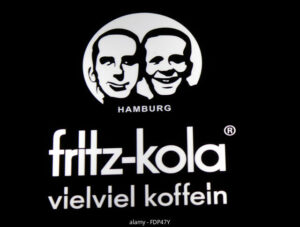
In this article, we will introduce you to Fritz-Kola, a dynamic and creative brand with a strong identity, which possesses several assets in the face of the work engagement crisis, the covid crisis and more…
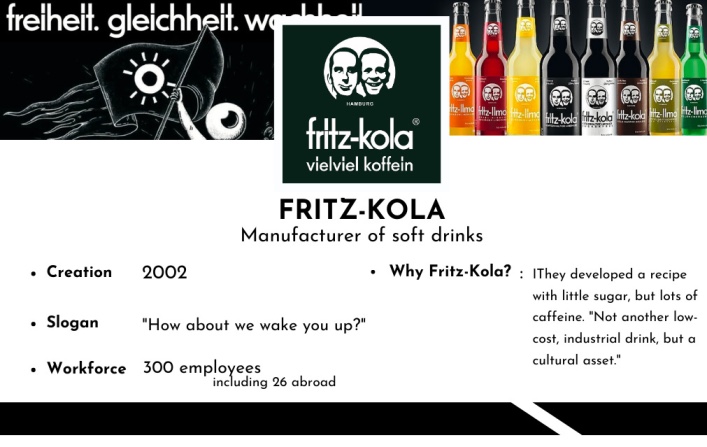
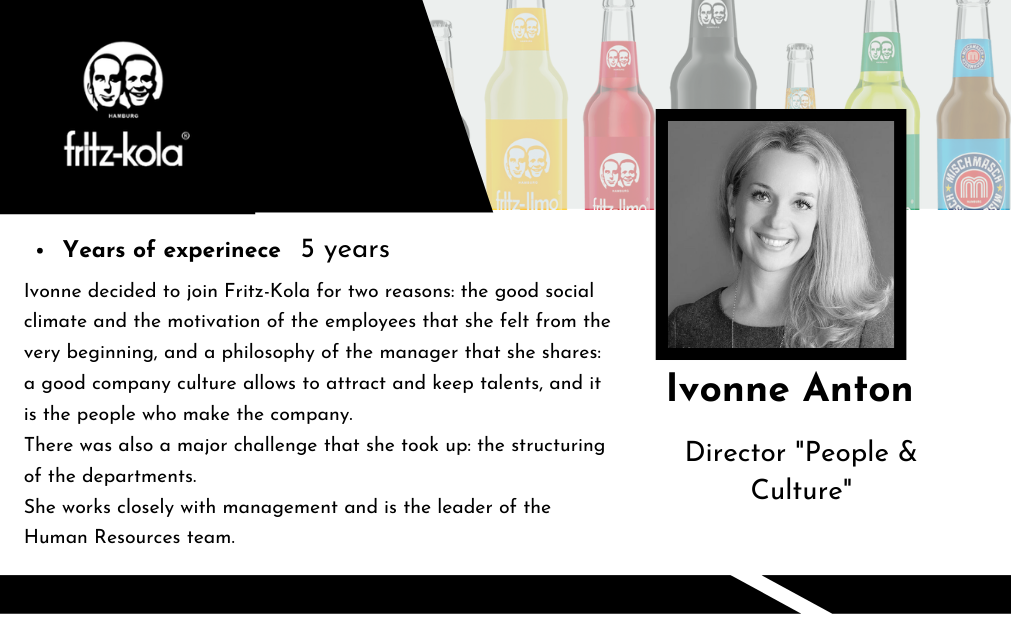
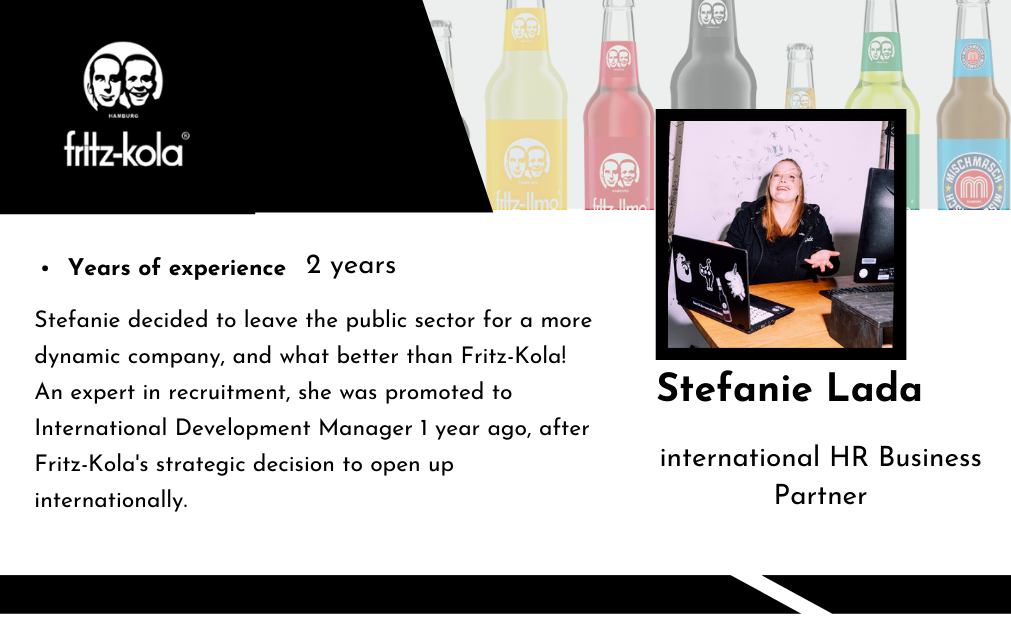
We’ve been told that at Fritz-Kola, you don’t feel the meaning of work crisis that’s going on in society.
But what are Fritz-Kola’s strengths that allow it to get past the meaning of work crisis permeating through society?
We’ve tried to understand and unearth examples of their successful practices that encourage commitment and a good social climate…
A strong brand identity: the company’s culture is at the heart of their concerns
Indeed, their strong brand identity allows them to attract talent that is highly invested and clear about their motivations.
The brand identity permeates their premises where everything is marked with the Fritz-Kola brand, from decorative paintings, lamps, murals, and even clocks marked with the company’s values:
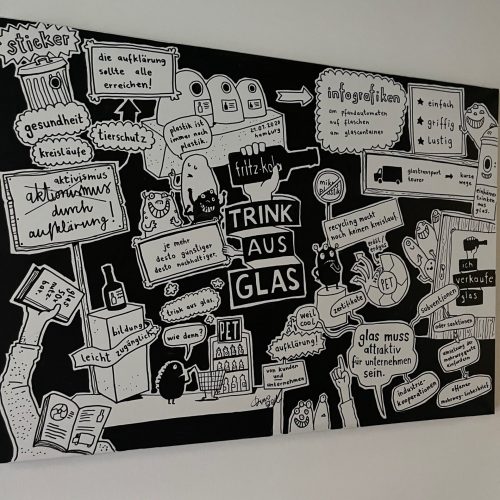
The brand identity is encouraged by the firm, which offers every employee between 300 and 500 euros to be spent in the employee store, with countless Fritz-Kola products.
They are also sent a large number of Fritz-Kola goodies and clothing free of charge before their induction. And in the office itself, free Fritz-Kola clothing is available.
We were told that one of the employees is so in love with the brand that he decided to design the floor of his home kitchen using Fritz-kola bottle caps!
Beyond these visual markers, it is a mentality common to all “Fritzies” that emerges during our meeting, a young, frank, fun side, preserved from the two founders’ impulse 20 years ago. Everyone is encouraged to be themselves and to express their creativity. For example, Fritz-Kola’s sales people are free to approach bars or restaurants they find attractive to propose drink marketing. And more than that: they each have a toolbox, and are free to create and make “Fritz-Kola” decorations in these places themselves, if they choose. Here are some of the creations:
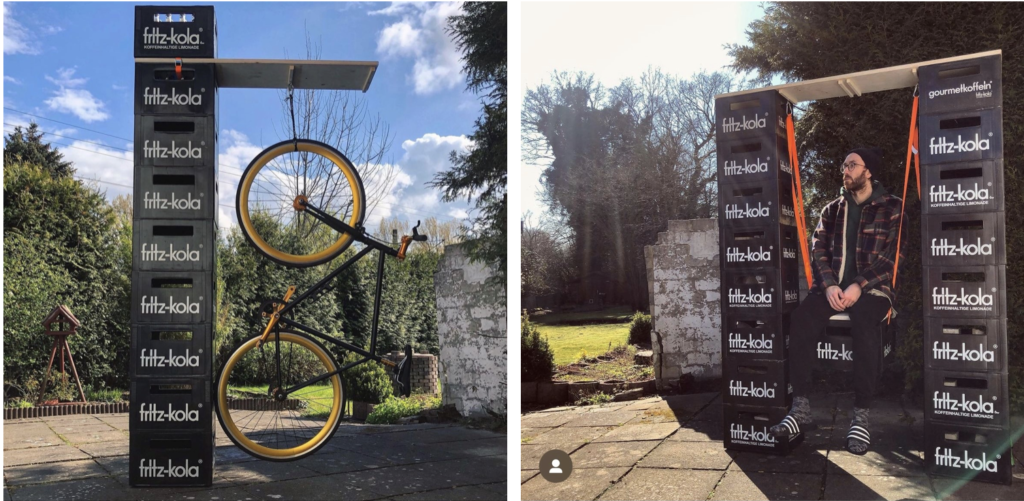
Feedback is very much encouraged and well supported: avoiding ego problems and repeating mistakes.
At Fritz-Kola, during the annual feedback meeting with the manager, which they call the “Dialok” (=signifying Dialogue in German, and spells the word kola backwards), the manager not only gives feedback, but also asks the employee for feedback. This is a great practice and allows for the strengthening of trust and communication between the different levels of the hierarchy.
Managers have a mandatory annual training which helps them to give and receive feedback. As with all training at Fritz, employees are given different tools or methods to choose from, and it is up to the employee to decide which they prefer.
Although they have annual reviews with their managers like most organizations, Fritz-Kola encourages feedback on a daily basis.
Employees are trained to know how to accept feedback via 2 mandatory trainings: the first one take place when the employee arrives, and the second one later on.
A tool for the manager to better understand his team and himself: the Insight Discovery Model
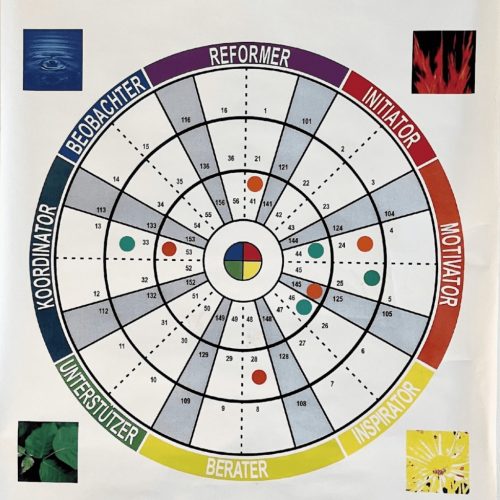
(You can find the website of the company offering these tests here).
The managers all take a test that defines their personality type. Then they try to identify the personality type of each of their subordinate employees. Once these findings are made, they are explained the specific characteristics of each personality “type”, and how best to address or behave in order to respect their sensibilities. But also how to take advantage of the strengths of each specific profile.
On one hand, this exercise allows to better understand others, and on the other hand, it allows one to have an attitude better adapted to the well-being of each person.
Since this analysis is quite expensive, other employees get a more basic explanation (in groups of 5 to 10 people) than the managers of the model.
Listen to Steffi’s full explanation video by clicking here.
Fritz-Kola, a committed brand: it is attractive for customers and it encourages employees to behave in a principled manner.
From the outset, we were told that this crisis had an impact on the company: they were preparing to roll out Fritz-Kola in Russia, everything was ready and they had invested money in preparing. However, when the war was announced, they cancelled everything. Principles before profit.
Fritz-Kola is a brand that promotes democracy and is not afraid to get involved politically. This is a distinguishing feature of the brand, which may encourage people to consume their product rather than the American Coca-Cola.
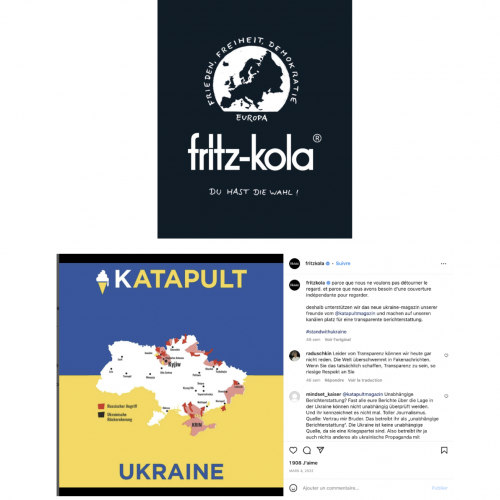
[Special edition logo with “Peace, Freedom, Democracy” written on it and an Instagram post]
Here, for example, Fritz-Kola promotes an independent media outlet on Instagram which informs about the war in Ukraine. He ends with #standwithukraine. This is just one the many supportive posts they’ve made.
But it’s not just marketing, as they have made many donations that they don’t promote: the latest one is a donation of 7,240 euros: 4,000 euros donated by the company and 3,240 euros donated by employees! This was in December 2022, for Christmas, to the charity “We are all Ukrainians”, a donation that will be used for urgent medical measures needed to help as many people as possible.
An interesting phenomenon can be seen here, which is that a donation initiated by the company can encourage employees to behave righteously as well.
Also, a strong and truly human action that impressed us, is that they found a job in their headquarters in Germany for the son of one of their Ukrainian distributors, enabling him to flee the war with his family.
Their approach to the crisis: strong employee support to ensure success
Their slogan at the beginning of the crisis, in 2019, was “United we’ll make it” and as proof of this: they made the decision not to leave any employee behind because of the crisis. And it was a success, they didn’t lose any employees. We think this is a strong message that keeps employees engaged, even after the crisis.
A fearful willingness of employees to work from home, but incetives are preferred to prohibitive measures.
Like many companies, Fritz-Kola decided to allow working from home more after the crisis. Whereas before it was very marginal to work from home, their premises are now, according to Ivonne, only 50 to 60% full. They require their employees to come 2 days a week, i.e. 3 days maximum of working from home. Often, in the other companies we visited, there are only 2 days of working from home allowed, so they are still on the high end.
Yet, we are told that they are rather afraid that with distance they will lose the unique identity of Fritz-Kola, and that they would rather have the employees come to the office. But it is not in Fritz’s mentality to impose, and they would rather try to make the workplace more attractive! For example, by organizing fun afterwork parties, or even yoga classes during breaks!
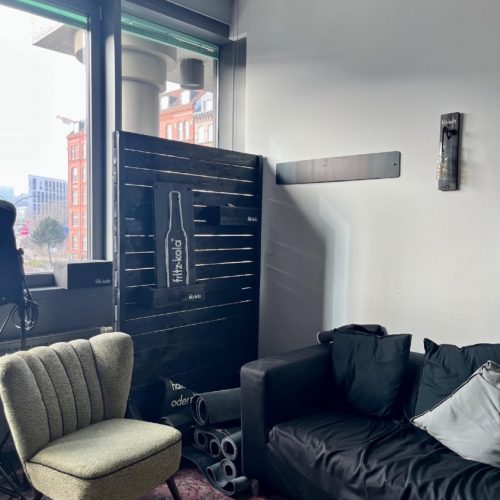
Encouraging employees to get involved and providing them with the necessary tools
Each year, Fritz-Kola employees can receive a bonus based on sustainable goals. 60% of this bonus depends on team action, which is validated by the manager, and 40% depends on a target defined at the company level.
What is interesting is that on the one hand the teams choose their action together for the “individual” part, and on the other hand the inclusion of a company objective allows everyone to be involved in the achievement of the strategic goal.
Another commitment: their entire fleet of company vehicles will be fully electric by 2024.
It’s not really a managerial practice, but we’re told Fritz-Kola is trying to make a small gesture to help its employees. And we think it’s actually a pretty big gesture! An extra 200 euros in salary each month throughout 2023, to help them with the inflation-related expenses. The profits from the previous year are used to finance this.
We hope you enjoyed this article! Thanks and see you soon!
lodysseemanageriale
Élodie & Dimitri
| Cookie | Duration | Description |
|---|---|---|
| cookielawinfo-checkbox-analytics | 11 months | This cookie is set by GDPR Cookie Consent plugin. The cookie is used to store the user consent for the cookies in the category "Analytics". |
| cookielawinfo-checkbox-functional | 11 months | The cookie is set by GDPR cookie consent to record the user consent for the cookies in the category "Functional". |
| cookielawinfo-checkbox-necessary | 11 months | This cookie is set by GDPR Cookie Consent plugin. The cookies is used to store the user consent for the cookies in the category "Necessary". |
| cookielawinfo-checkbox-others | 11 months | This cookie is set by GDPR Cookie Consent plugin. The cookie is used to store the user consent for the cookies in the category "Other. |
| cookielawinfo-checkbox-performance | 11 months | This cookie is set by GDPR Cookie Consent plugin. The cookie is used to store the user consent for the cookies in the category "Performance". |
| viewed_cookie_policy | 11 months | The cookie is set by the GDPR Cookie Consent plugin and is used to store whether or not user has consented to the use of cookies. It does not store any personal data. |